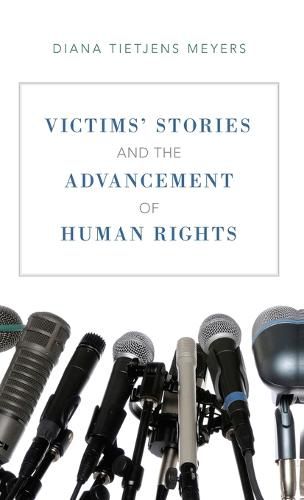Readings Newsletter
Become a Readings Member to make your shopping experience even easier.
Sign in or sign up for free!
You’re not far away from qualifying for FREE standard shipping within Australia
You’ve qualified for FREE standard shipping within Australia
The cart is loading…






Victim’s Stories and the Advancement of Human Rights takes on a set of questions suggested by the worldwide persistence of human rights abuse and the prevalence of victims’ stories in human rights campaigns, truth commissions, and international criminal tribunals: What conceptions of victims are presumed in contemporary human rights discourse? How do conventional narrative templates fail victims of human rights abuse and resist raising novel human rights issues? What is empathy, and how can victims frame their stories to overcome empathetic obstacles and promote commitment to human rights? How can victims’ stories be used ethically in the service of human rights? The book addresses these concerns by analyzing the rhetorical resources for and constraints on victims’ ability to articulate their stories and by clarifying how their stories can contribute to enlarged understandings of human rights protections and deepened commitments to realizing human rights. It theorizes the normative content that victims’ stories can convey and the bearing of that normative content on human rights. Throughout the book, published victims’ stories-including stories of torture, slavery, genocide, rape in wartime, and child soldiering-are analyzed in conjunction with philosophical arguments. This book mobilizes philosophical theory to illuminate victims’ stories and appeals to victims’ stories to enrich the philosophy of human rights.
$9.00 standard shipping within Australia
FREE standard shipping within Australia for orders over $100.00
Express & International shipping calculated at checkout
Victim’s Stories and the Advancement of Human Rights takes on a set of questions suggested by the worldwide persistence of human rights abuse and the prevalence of victims’ stories in human rights campaigns, truth commissions, and international criminal tribunals: What conceptions of victims are presumed in contemporary human rights discourse? How do conventional narrative templates fail victims of human rights abuse and resist raising novel human rights issues? What is empathy, and how can victims frame their stories to overcome empathetic obstacles and promote commitment to human rights? How can victims’ stories be used ethically in the service of human rights? The book addresses these concerns by analyzing the rhetorical resources for and constraints on victims’ ability to articulate their stories and by clarifying how their stories can contribute to enlarged understandings of human rights protections and deepened commitments to realizing human rights. It theorizes the normative content that victims’ stories can convey and the bearing of that normative content on human rights. Throughout the book, published victims’ stories-including stories of torture, slavery, genocide, rape in wartime, and child soldiering-are analyzed in conjunction with philosophical arguments. This book mobilizes philosophical theory to illuminate victims’ stories and appeals to victims’ stories to enrich the philosophy of human rights.